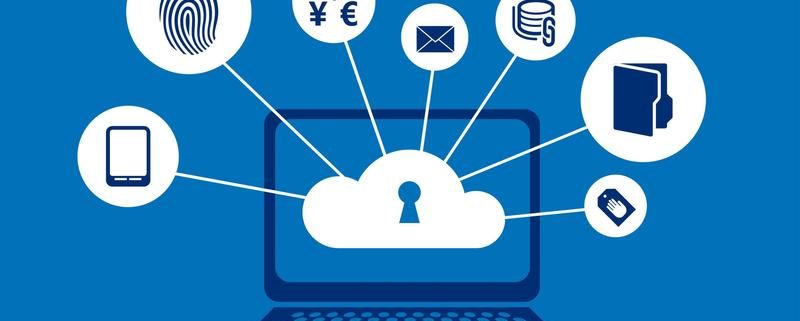Is security really an issue in cloud computing?
More and more businesses are now moving their data and critical IT infrastructure to the cloud. We can undoubtedly say that the cloud revolution is upon us. And it is a logical tendency – companies prefer to rent applications and storage because it’s cheaper than buying infrastructure and building it out from scratch.
Benefits of cloud computing
Cloud computing can therefore be considered as a new computing archetype that provides services on demand at a minimal cost. The benefits of using cloud computing are numerous. Some of them are:
-
Access to applications and content from any point at any time
-
Cost-effectiveness; lower energy and facility cost
-
Increase in business capacities
-
Better utilization of infrastructure investments
-
Better staff productivity across the organization
With software designed specifically for the cloud, all employees get access data at any time and from any point of the world. One would inevitably ask – what about the security? Data security has always been a major issue in IT. It becomes quite serious in the cloud computing environment. This is because data are scattered in different machines and storage devices, as well as various mobile device. Therefore, data security in cloud computing is more advanced and complicated than security in traditional information systems.
Data protection is in the core of cloud computing
A trustworthy cloud environment is a prerequisite to win the confidence and trust of users to adopt this type of technology. The two basic functions of this environment are: computing and data storage. Consumers of cloud computing can access their data and finish their computing tasks anytime and anywhere and all they need is internet connectivity. They don’t know where exactly the information is stored and which machines execute the tasks. So, the trust of the entire system actually depends on the data protection and protection methods and techniques used in it.
The concern about data security in cloud computing is very understandable, but the fact is that when done right security in the cloud can be as good as or even better than it is in traditional on-premise platforms. Indeed, cloud computing involves ceding of control from the customer to the service provider. Security and control though are not identical. In cloud data centres security costs are spread among many customers. Therefore, cloud operators can apply more resources to physical technical and operational security measures than most corporations and government agencies can. Large providers safeguard data security by operating multiple data centres with data replicated across all facilities.
Security is a combined responsibility
The focus of cloud security is keeping a company’s data secure. But one should understand that it is a combined effort between the enterprise and the cloud service provider (CSP). There are few important components of cloud security that you should have in mind. In the first place, make sure you sign up with a CSP that has stringent security policies. Then you should use security tools to identify the gaps between the CSP’s measures so that you get to know which security issues should be addressed at your end. Also, even if your CSP encrypts the data, don’t rely in this. Use solutions to encrypt data at file level before uploading it to the cloud. A very essential step is to secure the end-user devices that access the cloud resources – for this purpose you should deploy firewall solutions.
Before you enter the cloud
Before you contract with a CSP to put your company’s electronic data into the cloud, you should carefully examine the following core issues.
First comes data security. Consider precisely what kind of data you are putting into the cloud. If it is a sensitive or regulated information, it surely needs an extra level of security and needs to be segregated. Personal data, on the other hand, is usually governed by data protection laws.
You should definitely try to get more information on your data location – where your CSP’s servers are located and how data is transferred. This is also related to legal jurisdiction, regulations and data protection laws in different countries.
Also, ensure that the CSP communicates with you during each step of data oversight process. So, you should be aware of your provider’s policy for intrusion detection and security audits.
And as we already mentioned, there is a difference between security and control. But for the security of your data you need to have control over it. You should be aware who will have access to your corporation’s data. Make sure if the CSP uses some subcontractors who may eventually require access.
In the end, one thing is sure – a company which is responsible and enquiring enough for its data plus a trustworthy cloud service provider will definitely make the best combination and ensure the protection of information.
image source: techadvisor.co.uk












Leave a Reply
Want to join the discussion?Feel free to contribute!